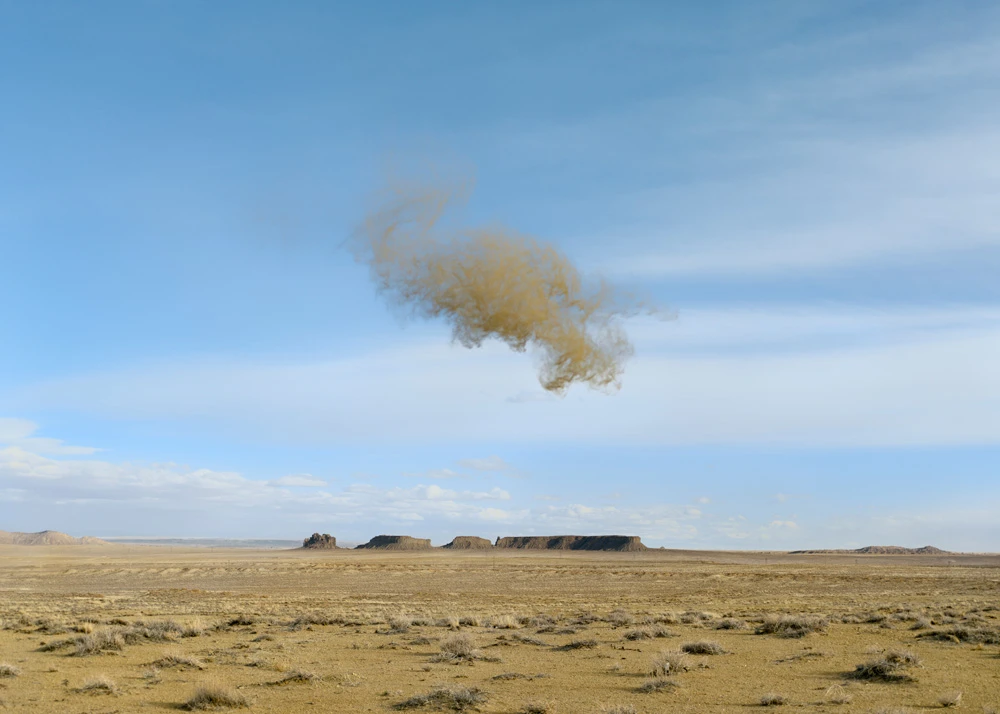
Table Mesa North
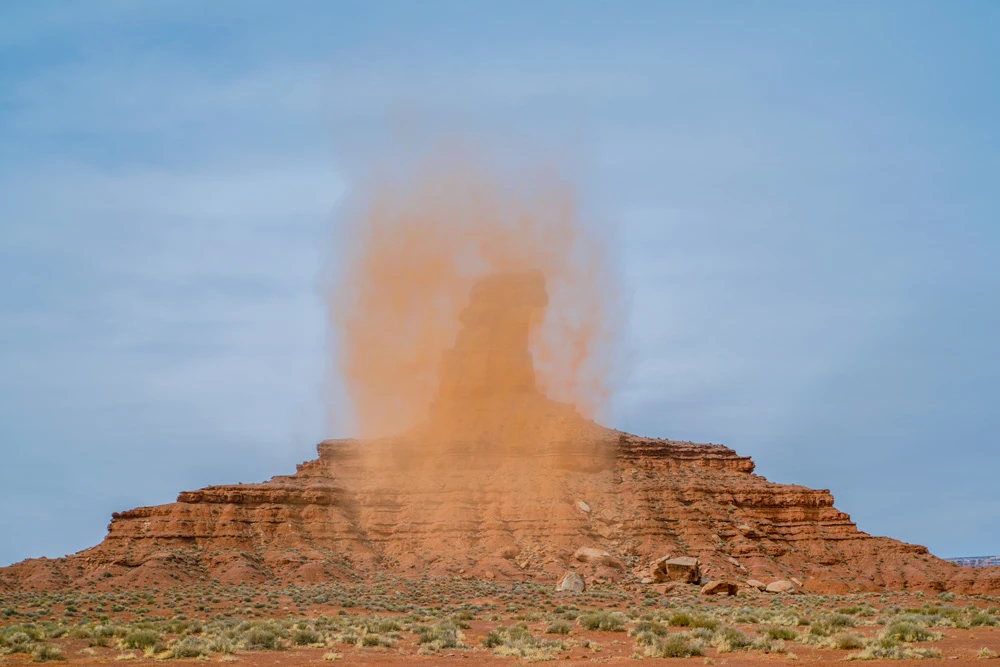
Rooster Butte (obscured)
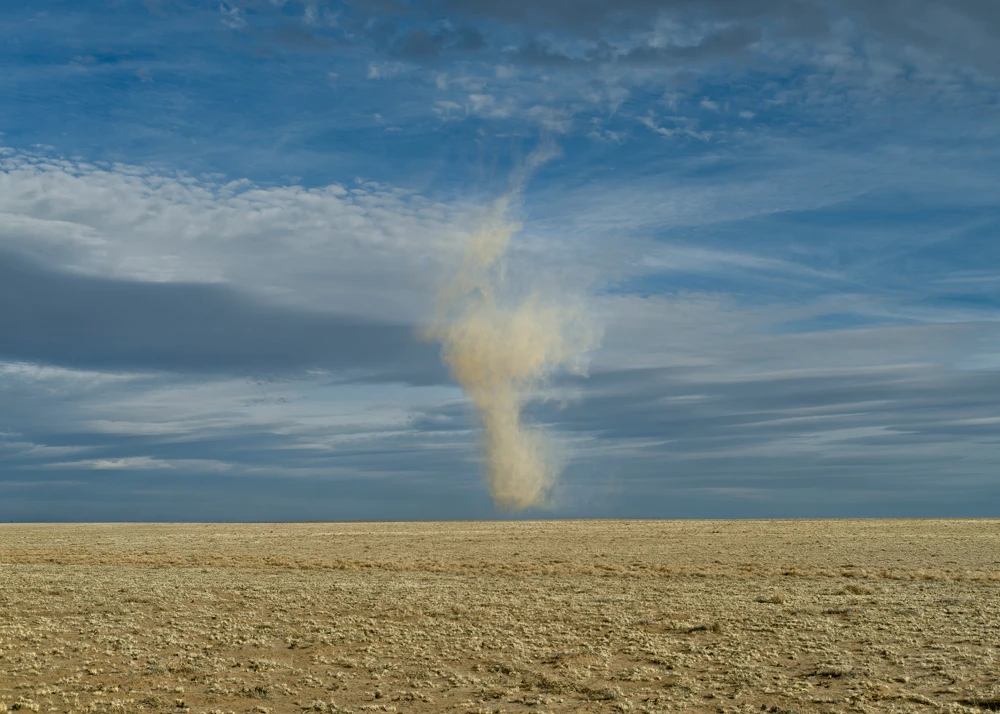
Teec Ni Di Tso Wash Mesa
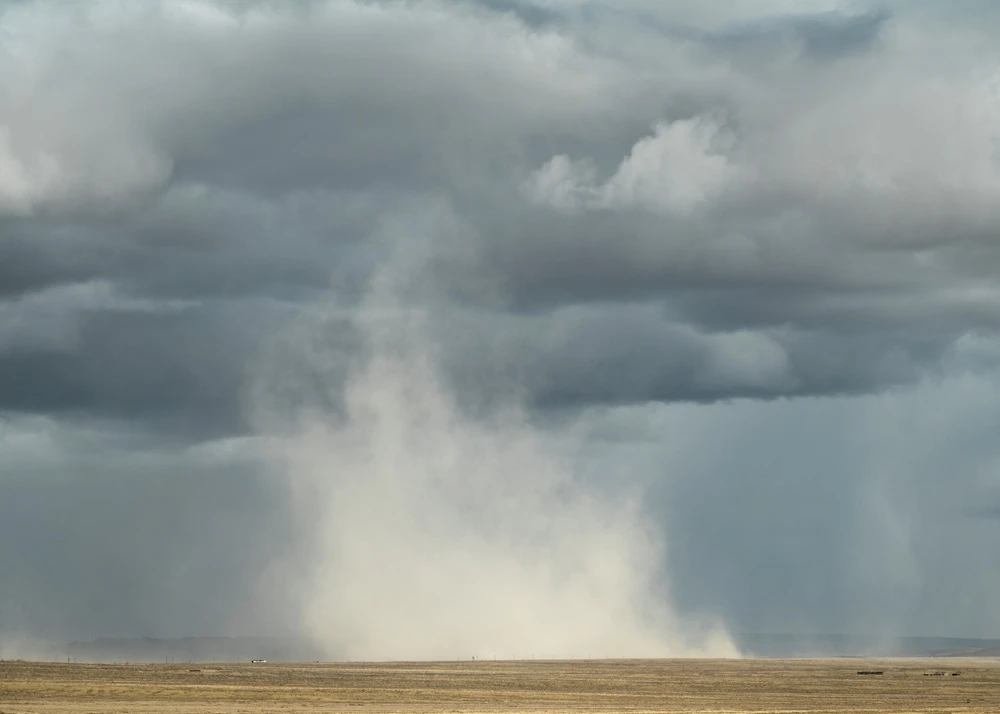
Dust cloud, Shiprock Airport
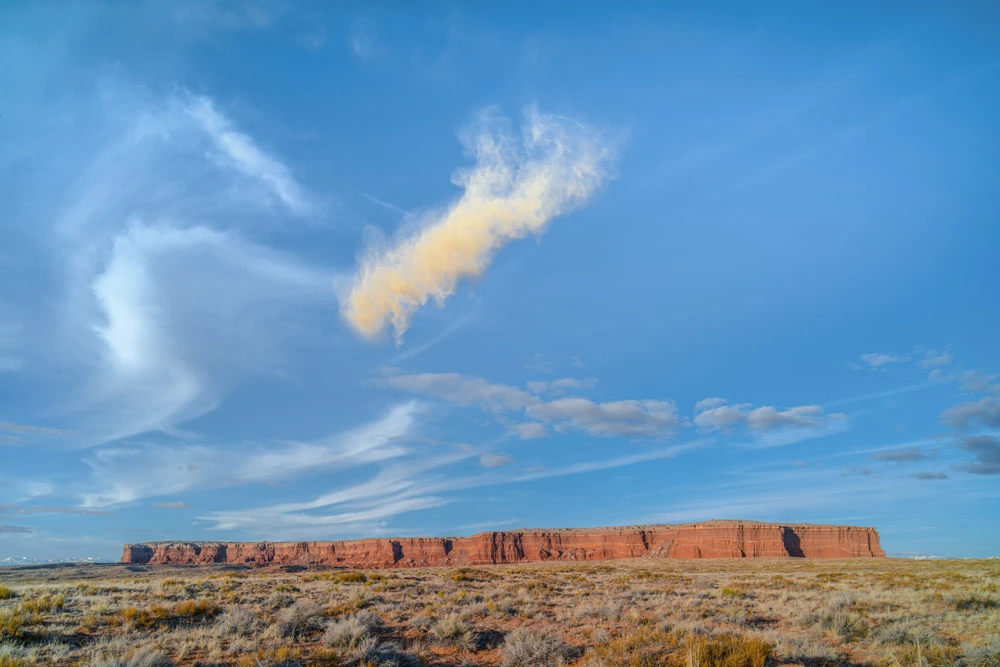
Red Mesa
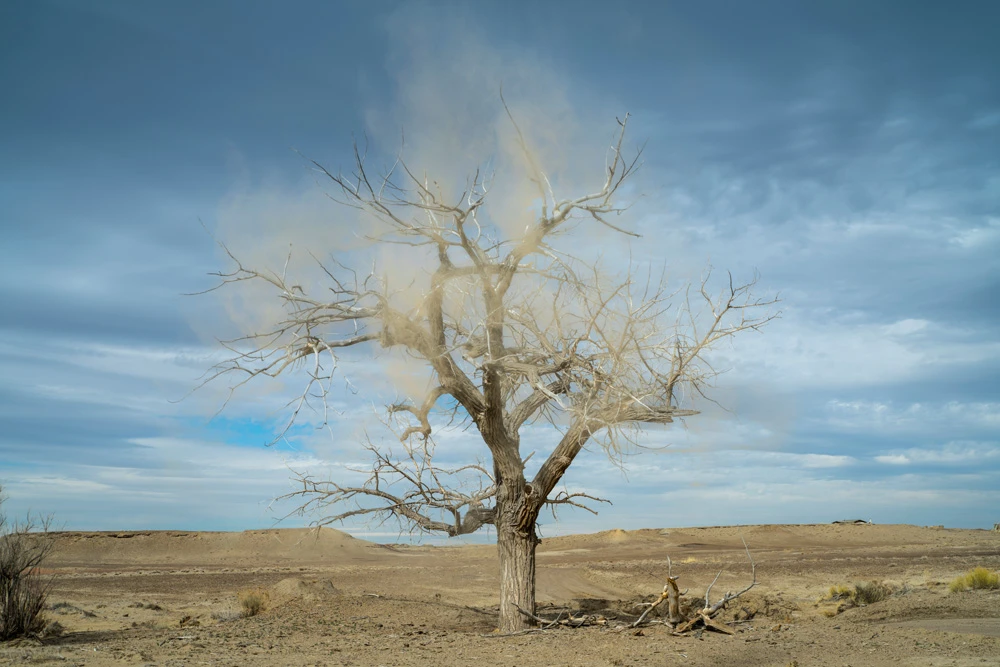
T'iistsoh Sikaad obscured cottonwood
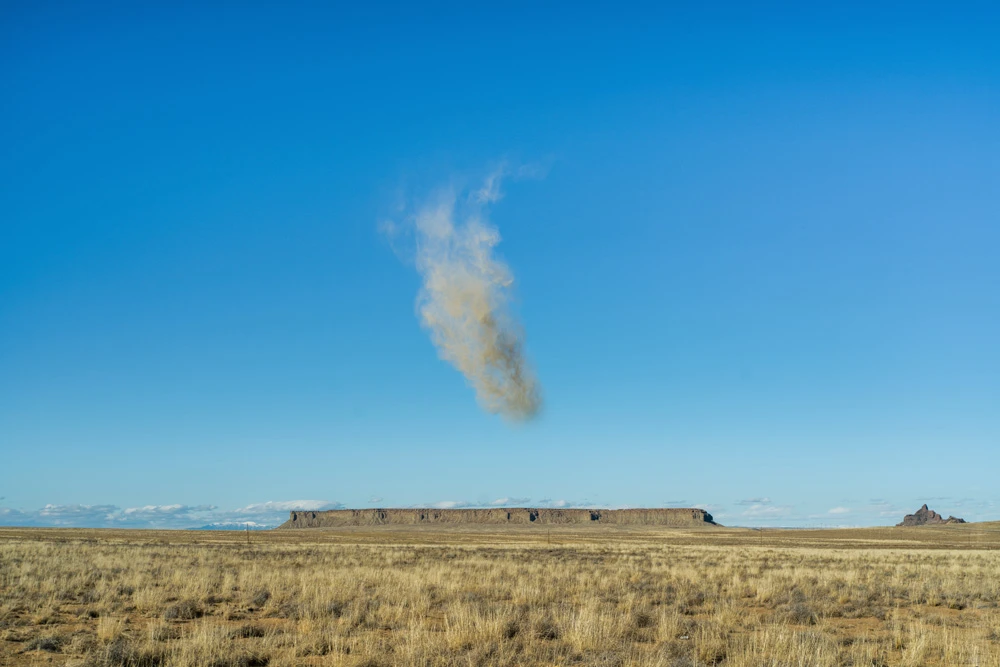
Table Mesa South
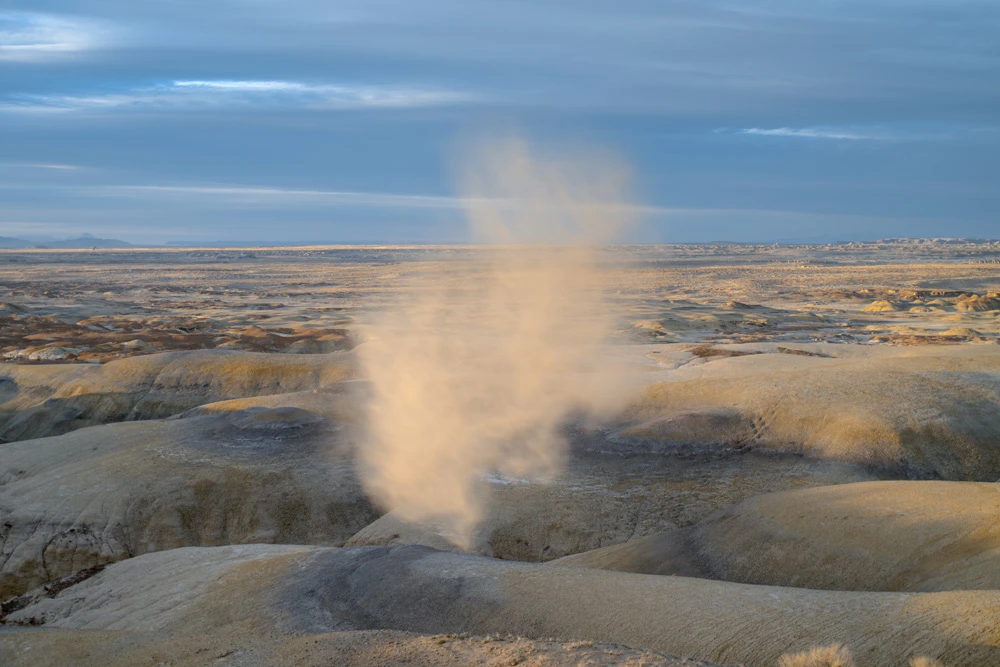
Brimhall Wash Mesa
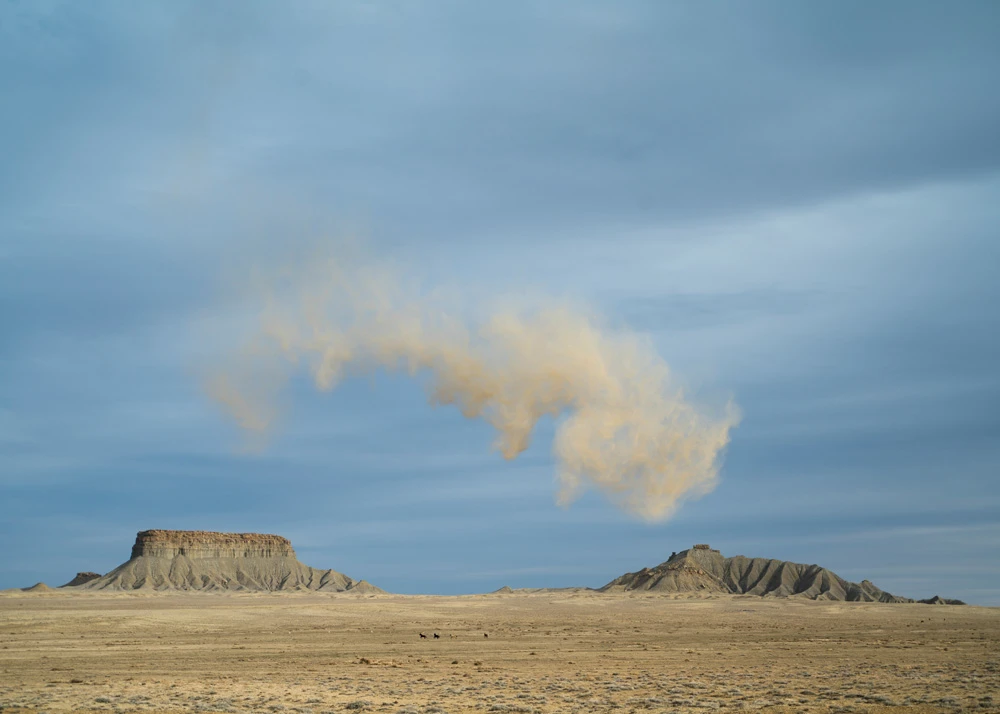
Skinney Rock Blue Hill
Documentation on creating Artificial Dust Clouds for my Aridification photography series
I tried many approaches to making clouds of dust. From simply throwing dust into the air, using a sling pouch, stick sling, giant sling shot and eventually dropping dust from a sling pouch suspended at the end of a long painters pole in strong gusts of wind.
Aridification
arid·i·fi·ca·tion: the gradual change of a region from a wetter to a drier climate
Drought is a key indicator of climate change. As the planet warms, weather events become more extreme, precipitation patterns change and climate zones shift. One of the most drought stricken areas within the United States is the four-corners region of Arizona, New Mexico, Colorado and Utah. This region is characterized by diverse and striking geography, marked by high desert landscapes, plateaus and mountainous terrain. It has a semi-arid to arid climate, making it susceptible to desertification, where water scarcity is exacerbated by frequent and intense drought conditions, posing challenges for ecosystems and communities.
In thinking about the vulnerability of this region and the growing impact of climate change, I sought to visualize aridification. By sifting dirt down to 100 microns, I created man-made dust. I suspended this dust in the air within the natural landscape, often in winds that would gust up to 40 mph. These artificial clouds of dust are uncanny, they are unnatural in a natural setting. They feel "off" and allude to an ecosystem in distress. These photographs were made on the Navajo Nation in New Mexico and Arizona in early 2023.
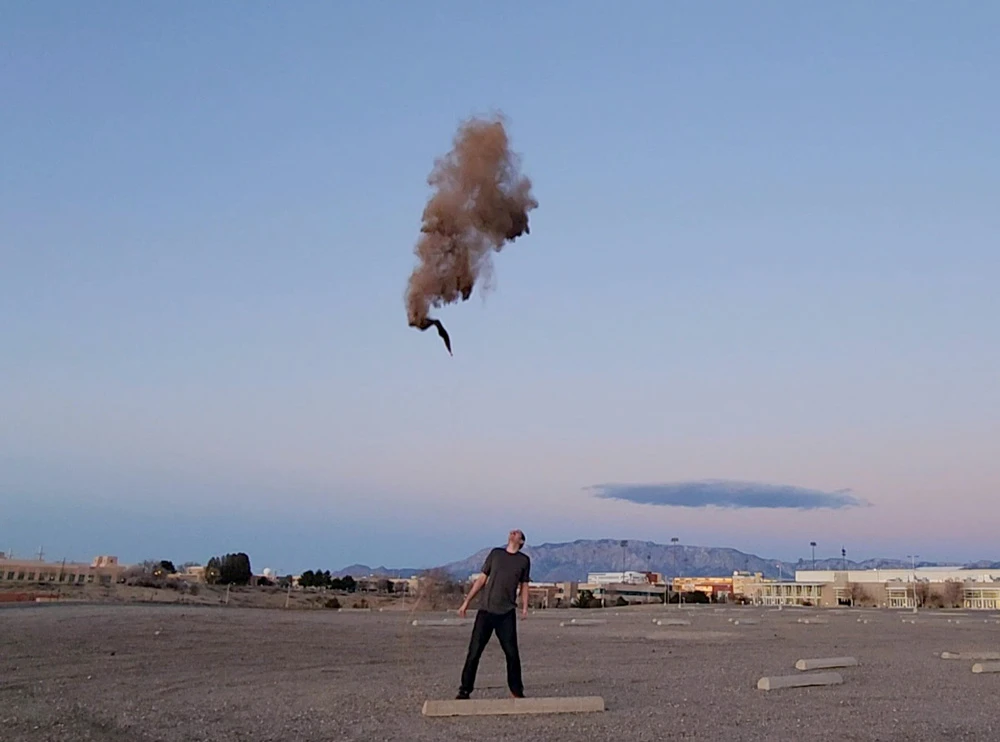
An early attempt at creating an artificial dust cloud
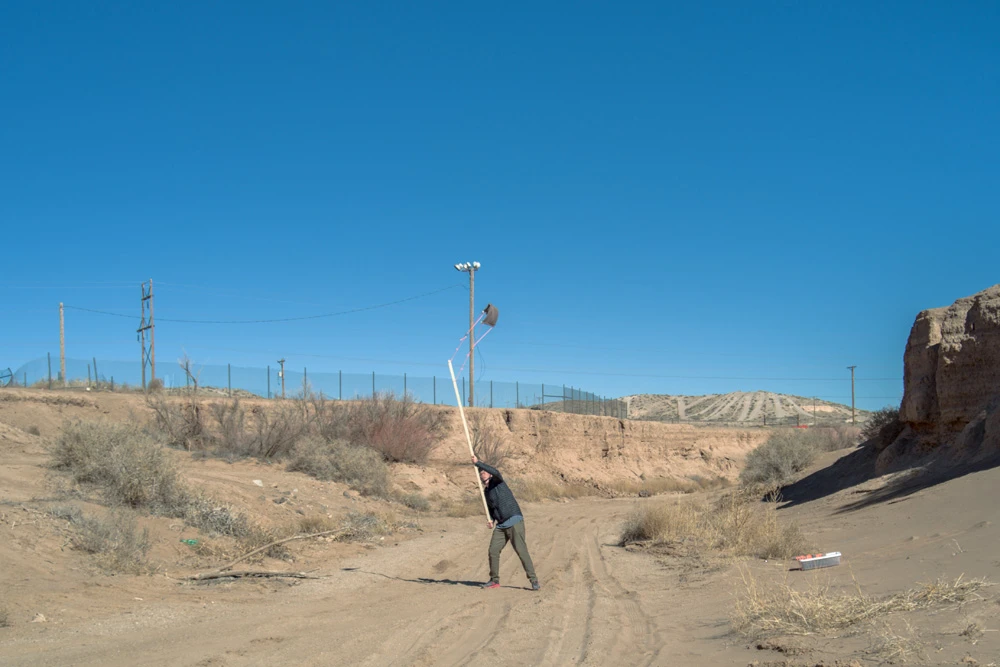
Using a stick sling to attempt to throw dust into the air
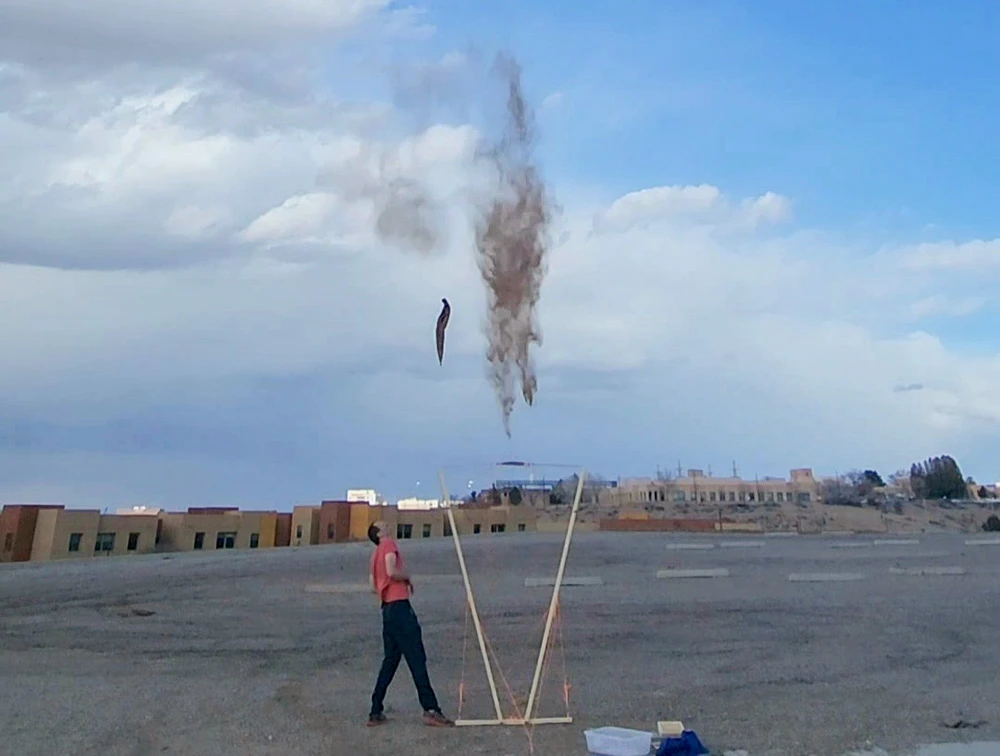
Testing a giant slingshot I created for launching dust
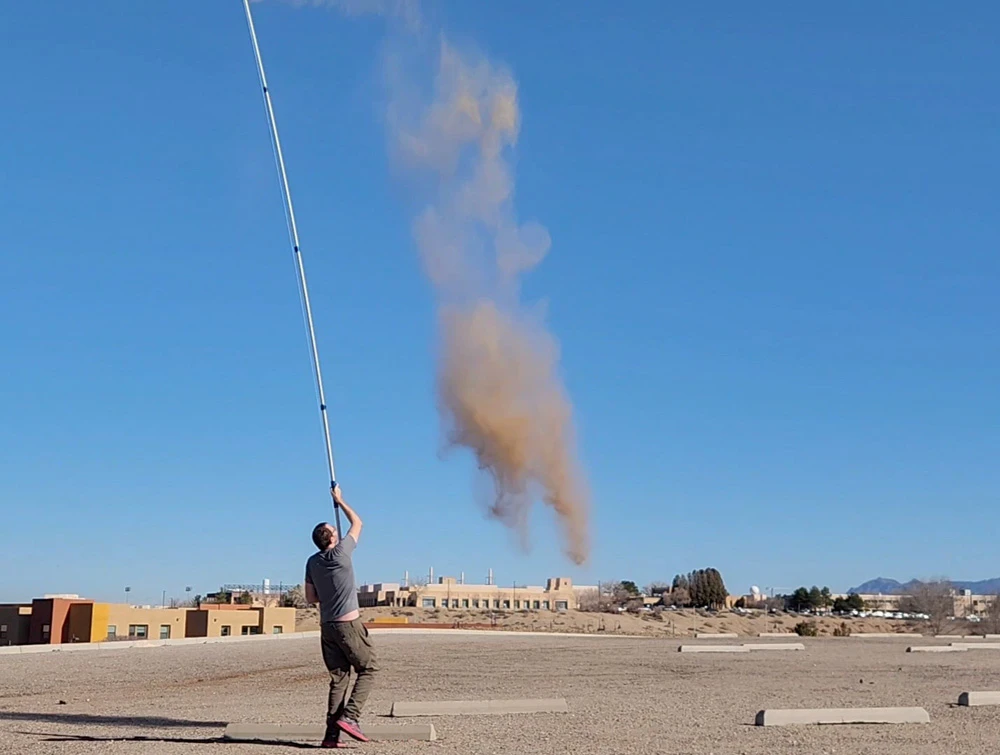
Testing dropping dust from a pouch at the top of a painting pole
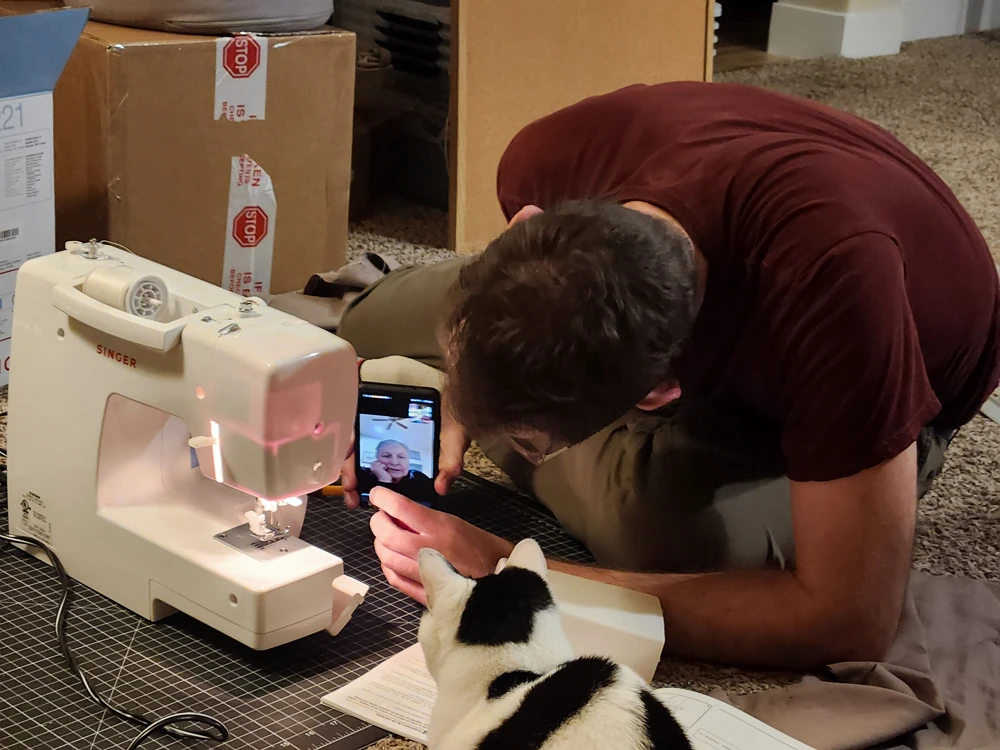
Virtual tutorial on how to fix a bobbin. Inky our cat su-PURR-vises
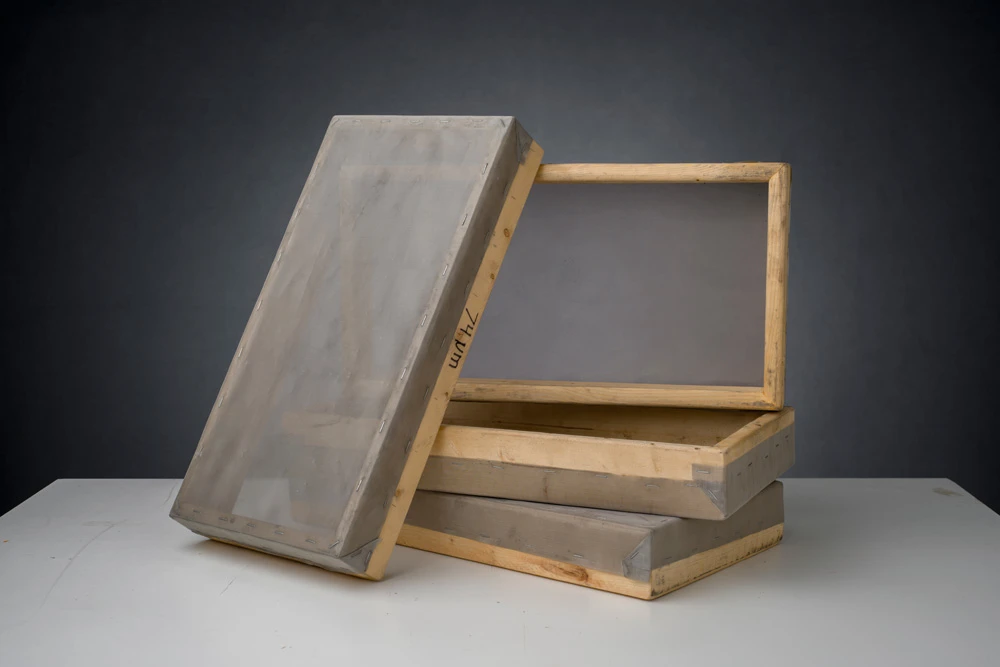
Sieves made for sifting dust down to 100 microns
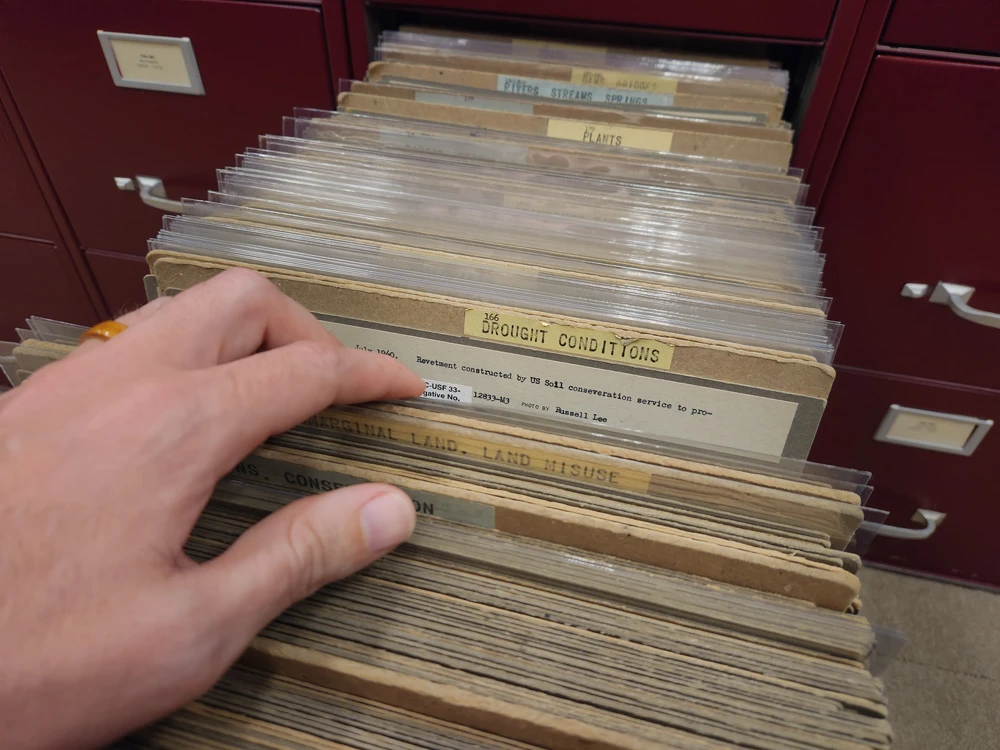
Exploring the Farm Security Administration at the Library of Congress
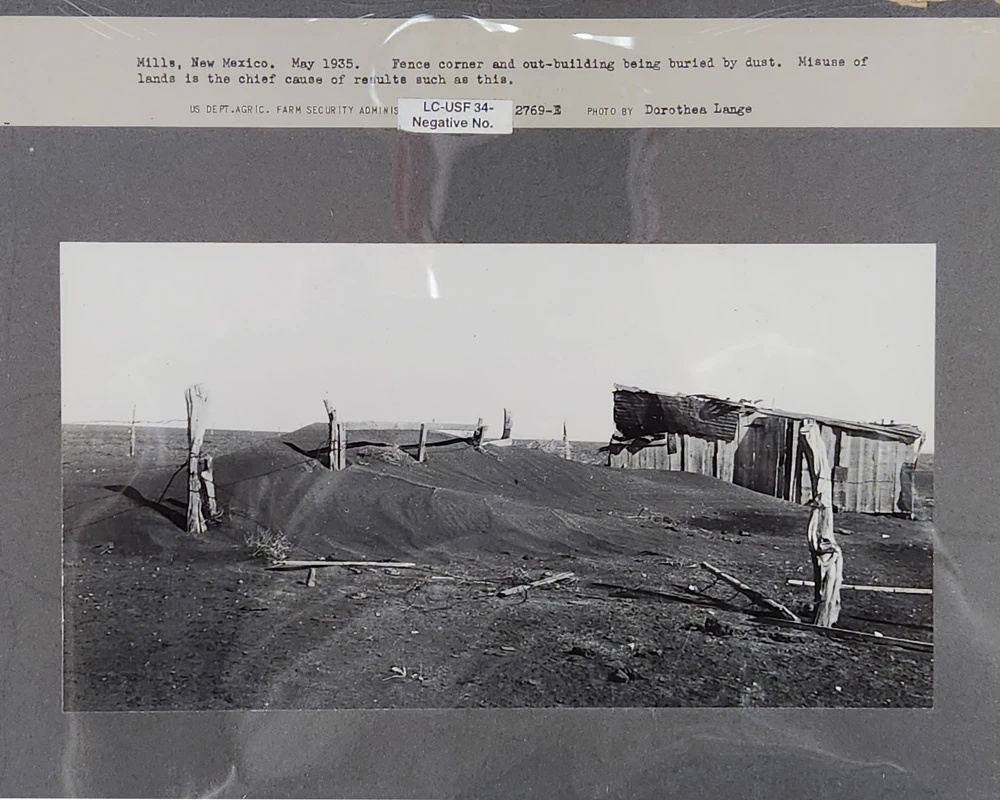
A Dorothea Lange photograph taken in Mills, NM
Our Place in the Scheme of Things
Richard F. Brush Art Gallery
August 14 – October 9, 2024
Photographs and videos from the Eco.Echo Art Collective
Our Place in the Scheme of Things explores our human mindset about nature, the need to contemplate it amid climate change, and the increasing eco-anxieties we face.
The exhibition includes fifteen artists from the Eco.Echo Art Collective: Morgan Barrie, Jeff Beekman, Dennis Dehart, Kes Efstathiou, Tyler Green, Jessica Hays, Josh Hobson, Megan Jacobs, Sarah Knobel, Michelle Leftheris, Jason Lindsey, Laura Plageman, Areca Roe, Melanie Schoeniger, and J. Wren Supak, whose work contemplates understanding and improving our relationship with the natural environment.
The exhibition underscores the essential elements of the environment — water, air, earth — and their degradation caused by storms, fire, and drought often brought about by human pursuits. Photographs and videos on display reflect the relationship between the physical and metaphysical, serving as a spiritual, biophilic statement that highlights the environmental challenges that contemporary societies confront. Though some of the images may show little evidence of humans, quiet interventions with the landscape are visually narrated by each artist, revealing sensorial relationships and catastrophe poetics that may evoke sorrow, hope, and tenderness.
The exhibition is curated by Leonor Jurado, Sarah Knobel, Areca Roe, and Melanie Schoeniger.
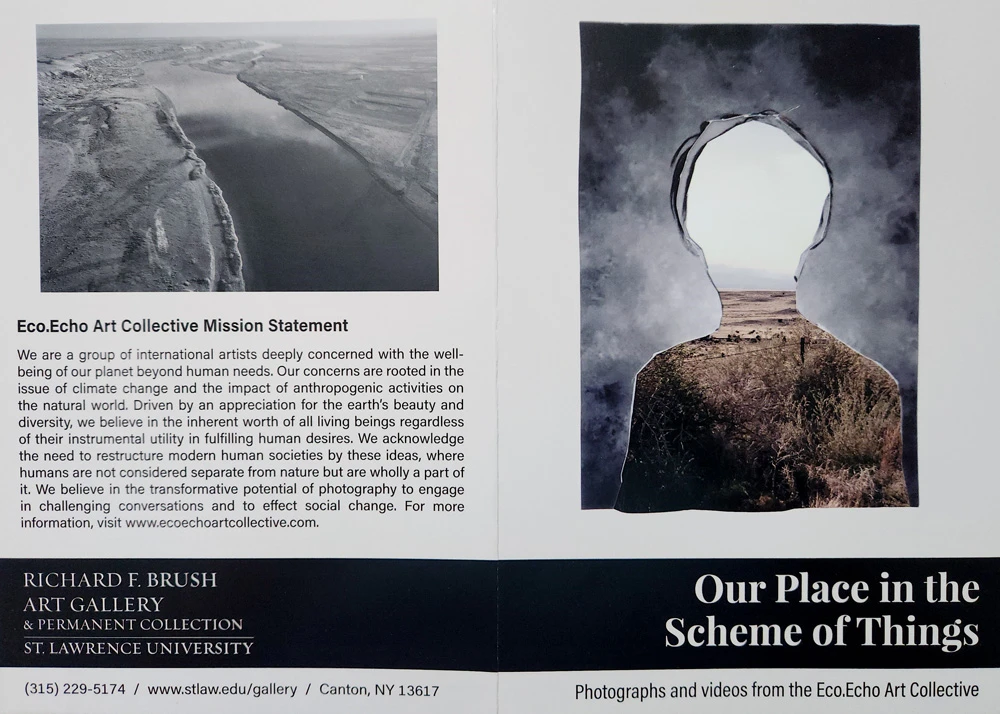
Flyer Front
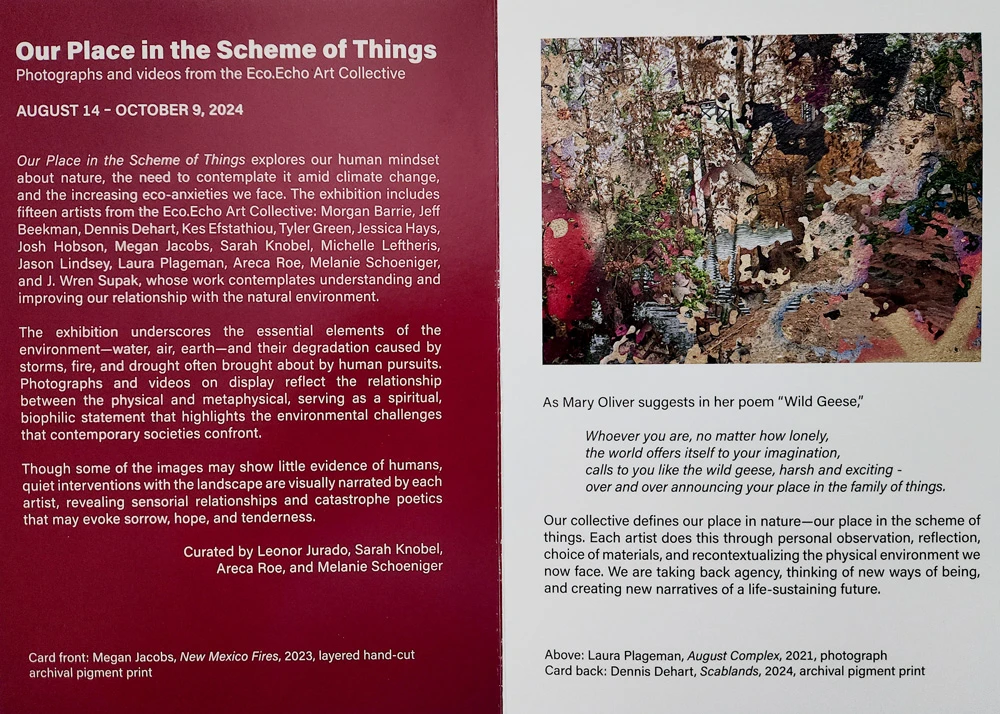
Flyer Back